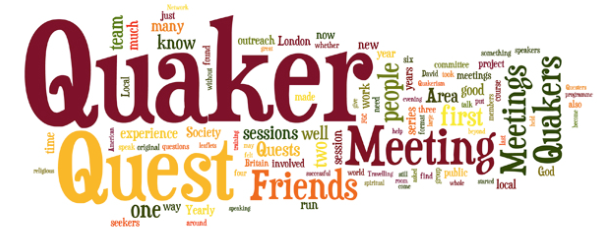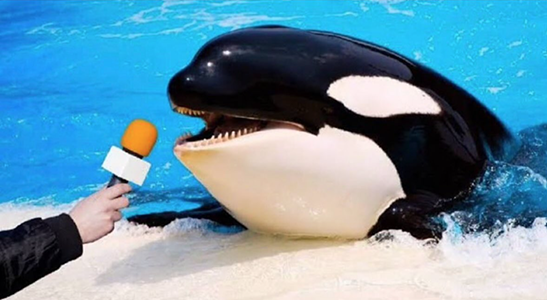— from Kevin Carter, Gregory Kramer, and Jari Andrea Brenner —

Orcas Island is this perfect backdrop for creating and living your best life, but for some, there is an undercurrent of intolerance and, in some cases, blatant racism. What will you do to nurture your oasis?
Most of the articles about Orcas Island glow as they entice us with titles like: “Why Washington’s Orcas Island Should Be Your Next Family Getaway,” and “This Island in Washington State Will Make You Feel Like a Multimillionaire.” These articles outline the charms and beauty of Orcas Island— “magical scenery, community, and cuisine that make you feel like Oprah.” The New York Times travel editors identified Orcas Island as one of its top 52 places to visit in 2019 “for its impressive tide-to-table culinary scene and experimental wines.”
We take a different perspective. Our concern is the culture of inclusion and care of our full-time community. We reflect on Orcas Island considering its African American, Latino, and Bi-Racial people and request your comments and suggestions for positive next steps. Our purpose is to elevate our community’s values—and its joy—by initiating a conversation about empathy, relationship, and kinship.
More than a year ago, Timothy Coffey wrote a guest column in the Islands Sounder condemning bigotry. The column sparked a debate within the paper, and the Orcas Island Facebook Rant & Rave page, about an individual’s right to engage in a private conversation versus the importance of speaking up against bias, stereotypes, and racism. While the two women
mentioned in the column were in a private conversation, that private conversation took place within a public restaurant, within the Orcas Island community.
In the fifteen months since Coffey spoke up, other Orcas Island residents have experienced or witnessed acts of racial or ethnic intolerance on the island. This article is our effort to speak out about this and invite a frank, new, essential conversation in our community.
In July, Kevin Carter, an African American resident, was reminded how people of color are still novelties on the island. He also saw how a person’s privilege could make them oblivious to their prejudice. Carter was eating at the Island Skillet one morning, and an older gentleman, who said he lived on the island, said to the waitress, “Where is your accent from?” Carter could not hear her response. The gentlemen continued to say, “It sounds Hispanic. I guess I will not need to call the INS [Immigration and Naturalization Service].” And then the gentleman chuckled as if his remark was a harmless joke. The gentleman’s actions made Carter uncomfortable.
For Alison Dantzler, another African American resident, it was the experience of listening to a small group of men at Enzo’s Restaurant in Eastsound, in September, having a very loud conversation about the Black and Hispanic population in America. One of them said, “I should just move to Iowa or Idaho where there are no black people so that I won’t get mugged,” while his friend spoke about how to build “the wall effectively.”
Michell Marshall, a retired Microsoft executive, founder and CEO of Woman In the Woods Productions, and owner of the Office Cupboard, in Eastsound, has a related story; it moved her to action.
As an African American woman, Michell reflected on the predominantly homogeneous population of Orcas Island and wondered how the faces and perspectives of the island could better reflect the broader world in which we live. She founded Woman in the Woods Productions, whose mission is to promote an appreciation and understanding of racial and cultural differences through various forms of artistic expression. This initiative has received praise and gratitude from many in our community.
Is there an Orcas Island community, and if there is, what are our shared values, beliefs, and norms? Do those norms advocate remaining silent, and thus tacitly approving, or speaking up and fostering a welcoming, appreciative, and connected community? Do we care enough about these
issues to take an active role in fostering a mature, caring community?
Given these cultural incidents, we are developing a free workshop for the community. It will have four objectives:
- To discuss what community means, when it has been challenging to maintain, and when it empowers and connects;
- To provide the foundation of Insight Dialogue, to further interpersonal awareness;
- To learn the foundations of Cultural Competence to aid residents to adapt successfully across cultures; and
- To confirm the individual and collective action to foster a diverse and inclusive community on Orcas Island.
A preview of the workshop will take place on Tuesday, February 18, from 6 to 7:15 at the Orcas Island Library at 340 Madrona Street in Eastsound. We are actively seeking feedback from you. Are such workshops something you would be interested in attending? What topics or situations would you like incorporated in the workshop?
Please add your comments below or email us at orcasislanddei@gmail.com.
- Kevin Carter is the President of Inclusion Innovates, and a Principal Strategist with The Winters Group, Inc. His specialty is diversity, inclusion, and equity (DEI) strategy development, knowledge transfer, and coaching.
- Gregory Kramer is the Founding Teacher of Metta Foundation and has been teaching Insight Meditation since 1980. He developed the practice of Insight Dialogue and has been teaching it since 1995, offering retreats in North America, Asia, Europe, and Australia.
- Jari Andrea Brenner has been a journalist, a technical writer, and editor, and a social worker. She holds undergraduate degrees in social work, psychology, and journalism, a graduate degree in Cultural Anthropology, and is certified in Intercultural Communications.








Amazing how an entire industry has been developed around the concept of loving your neighbor.
It’s possible that it may not be just People of Color, perhaps, the recent push to limit visitors, tourists, and new residents all point to a problem brewing in the Garden of Eden…How does a community hold itself out as being inviting and restricting at the same time?
Orcas as of 2000: Percentage and # of people
White alone 93.7% #4304
Two or more races 2.5% #113
Hispanic 1.9% #86
Asian alone 1.0% #44
American Indian alone 0.4% #20
Black alone 0.2% #10
Other race alone 0.2% #10
Native Hawaiian and Other Pacific Islander alone 0.1% #6
Add in economic data, cost of housing, median incomes, and it is apparent that Orcas is quite homogeneous.
I welcome this discussion. I am currently reading White Fragility by Robin DiAngelo. I’m learning more about my own prejudices and bias, as well as the systemic racism that is all around us. The only way we are going to make constructive progress is to talk with one another. I applaud you for bringing this conversation to a community level.
“It’s possible that it may not be just People of Color, perhaps, the recent push to limit visitors, tourists, and new residents all point to a problem brewing in the Garden of Eden…How does a community hold itself out as being inviting and restricting at the same time?”
As you point out Neil– there are many reasons why Orcas (not unlike many fringe communities) is homogeneous. I’d further that by saying that it is becoming more so as time goes by. This is an excellent article regarding the efforts of some of our respected citizens to create some dialogue regarding inclusivity in a manner relative to cultural incidents that have taken place that have no place here, or anywhere.
Your ever-continuing analogies trying to conflate the efforts of those working hard to save their communities and their environment from the known impacts of over-tourism “to a problem brewing” is disingenuous. It is one thing to disagree with people based on facts Neil… it is altogether another to misrepresent them.
We host almost a million tourists a year… that’s getting pretty inviting.
This sounds like a conversation we need to have.
I have worked in esl education for 20 years working with newcomers to the US from all over the world. There is lack of diversity here and I really believe there is so much that we can do to make this place more inclusive.
Michael, no intention to conflate anything. Can you give me the source for Orcas having almost 1,000,000 visitors a year? And I object to being accused of misrepresenting since I haven’t done anything other than to present facts as published in reputable sources.
I fully understand that the majority of peopled on Orcas want an immediate moratorium on everything and I have proposed many ways to limit or even get rid of tourism and growth. In fact, growth could easily be reversed and the island depopulated! It’s actually easy to do, but that seems contrary to a desire to make the community more diverse, since that would require bringing in other people when the stated desire is to keep anyone new out. That’s why I was surprised by the article about diversification, as there is no way to do that without growth!
Love the article.
There was another incident, where NYC chef Marquis Hayes who choose orcas to work on his cookbook and is now a current resident of orcas island. He was approached by Aryan brotherhood members and almost had a physical altercation at the white horse pub.
And don’t forget the Native Americans, like the Lummi, who were here long before us white folks showed up in the late 1800s. According to the Treaty of 1855, they were led off this (their) island in chains. Some of them would like to return, in honor and dignity. And they have much to contribute. Or that they have already contributed — like leading the successful opposition to the Gateway Pacific coal terminal.
The discussion and focus here seems to be on fostering racial and cultural equality and inclusion. White fragility is a real and very damaging thing – just ask the many peoples that have been under the boot of white dominance, “Indian schools,” Japanese occupation and land grab, and Chinese and African American slaves.
IF we who are “white” will take an honest look and root out our own white fragility, we can have meaningful conversations and perhaps lasting changes. A huge part of that discussion needs to be how we own or push away our history of white dominance and hatred of other races and cultures -ie colonization; and how that plays out today in insidious ways.
That leads to a need to look at income disparity; who controls what, and whom – it’s all interconnected and we need to look at the whole of things; the whole system of oppression. How we treat any other races, cultures, women, children, sexual orientations, and so called “lesser” or “inferior” or “immoral” peoples spills also into how we treat lands and waters that we are supposed to steward and protect. Yes, we need to have many conversations and it wouldn’t hurt to have some Truth and Reconciliation toward the peoples we’ve oppressed here in “paradise.”
As for Neil Kaye’s comments – you can’t have”sustainable” anything alongside of unlimited growth, on a small finite island land mass surrounded by water. IF we have no preserved lands or clean water, we have nothing; we will foul our own nest – as is being evidenced here in Eastsound.
I also am curious about the 1 million visitor number. Sounds at least four of five times possible numbers.
Kevin, Gregory, and Jari- I wish you every success, and I echo your concerns regarding the culture of inclusion and care of our full-time community.
San Juan Islands National Monument Annual Manager’s Report — Fiscal Year 2016
Visitation in the San Juan Islands is estimated to be 1,000,000, occurring primarily in the months of May through September. Visitation to the monument is estimated to be 93,000.
https://www.blm.gov/sites/blm.gov/files/documents/files/OR-WA_SJINM_MgrsRpt_2016_FINAL%20Rpt_0.pdf
I would agree with Sadie on this – it is not a matter of race as much as class. (if I am reading her correctly) Is resistance to the likes of Oprah because of race or because she’s big footing her way in with a ton of dough?
Are there racists here? Sure. But, like cigarette smoking, racism and its cousin tribalism are everywhere on the way out. Are racists threatened and fragile? Yes, but why draw attention to already marginalized individuals?
In my look around the community it would behoove us to look at racial and class disparities through the lens of economics rather than focus on those who are loud and marginalized – if falsely empowered by the racist in Chief.
Hi All, I will dive into the comments today. Thank you for all your feedback. A Facebook event page has been created so that we create enough handouts, and have enough refreshments. https://www.facebook.com/events/273884003573296/
I agree it’s a conversation we need to keep having. I am constantly learning ways in which racism, and its grandparent—race, affect every single aspect of life. I wish we talked about it all the time and I am excited to be there at the meeting for Black History month at the library. I hope many of you will join me to keep it going.